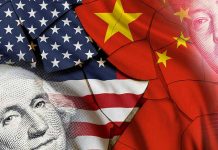Alibaba’s ecommerce platforms, Tencent’s video games, Didi’s ride hailing service – these are some of China’s biggest names in tech, and for the past several years, foreign investors have been pouring money into their stocks.
But this summer, those shares listed in New York and Hong Kong saw sharp selloffs and it had little to do with their business performance.
China has taken a series of actions against big tech and those moves, from clamping down on alleged monopolistic behavior to tightening rules on data security have sent shockwaves through international markets.
There has been a sense amongst China’s officials that some these companies have become a bit too powerful. In July alone, food delivery app Meituan, Tencent, Alibaba and short video app Kuaishou lost about 20% of their combined market value.
A top Chinese securities regulator privately reassured foreign financial firms that the government would consider the market impact of its policy decisions. But investors wonder what the future holds for China’s tech companies and more broadly, for listings of Chinese companies in the United States and other countries.
The scope and severity of the moves recently has taken people aback. Many foreign investors are kind of asking: Okay, we thought we knew all the risks here but are things actually worse than we imagined?
China has stepped up efforts to rein in big tech. And fast growing firms like Tencent and ride hailing app Didi, which have become central to everyday life in China, have been subject to the clamp down.
Earlier this year, Didi went public on New York Stock Exchange in a multi-billion dollar IPO that was completed in just a few days. It emerged that perhaps they hadn’t got the full sign off from the Chinese authorities or at least Chinese authorities had suggested to them that they might want to hold off partly for data security reasons. But Didi pressed ahead anyways.
China regulators launched a cybersecurity probe and suspended Didi’s apps and said the company, which collects a range of user data, hadn’t complied with China’s data protection rules. Shortly after, its stock plummeted.
It kind of left investors with the sense that Didi had been punished for having the temerity to go public when it should perhaps have been more heedful of what China regulators were saying. Didi said it will comply with requirements made by relevant authorities.
Last year, after billionaire Jack Ma publicly called for regulatory changes, China authorities targeted Ant and Alibaba – two firms he’s closely associated with. Regulators shutdown Ant’s blockbuster IPO, which was expected to be the world’s largest public listing and launched an antitrust probe into Alibaba.
Now after all these events, markets are jittery. In August, when a state-owned Chinese newspaper criticized online gaming as opium for the mind, the stock of gaming giant Tencent saw a massive selloff.
Tencent, also the owner of social media and messaging platform WeChat, has recently come under pressure to address what authorities are calling anti-competitive practices and security issues. Tencent said it would introduce new rules including stricter curbs on younger gamers.
Some investors wonder if China authorities might also target the mechanism foreign buyers use to invest in China stocks listed offshore. If you are investing in certain U.S.-listed Chinese companies, like Alibaba, you are not exactly buying shares directly in the business. You are buying into an offshore vehicle that has a series of legal arrangements with the operations inside China.
This setup uses what is known as a VIE or Variable Interest Entity. There are literally trillions of dollars worth in market cap of Chinese companies listed abroad. And most of that is done through these VIE structures. Over time, some people have questioned it because it operates in this kind of grey area where the Chinese authorities might one day kind of decide that they don’t like this loophole.
Until recently, Chinese companies going public in the U.S. were a bright spot in the otherwise tumultuous U.S.-China relationship. And some Chinese tech stocks have produced big gains for foreign investors in the last few years.
But for now, everyone’s watching to see what steps Chinese regulators will take next as it seems like the campaign isn’t over.














